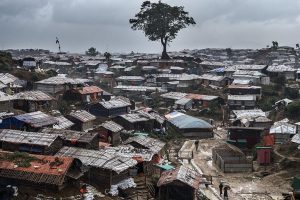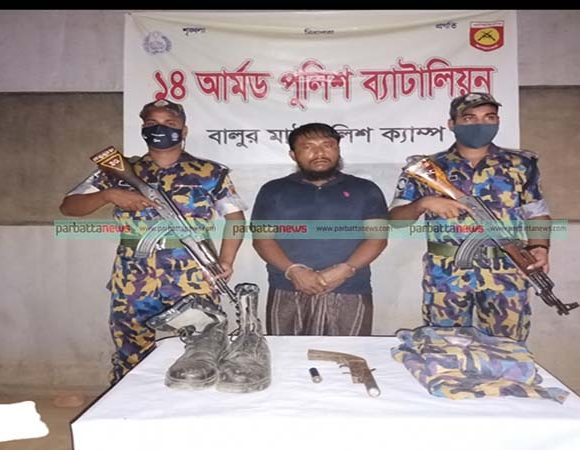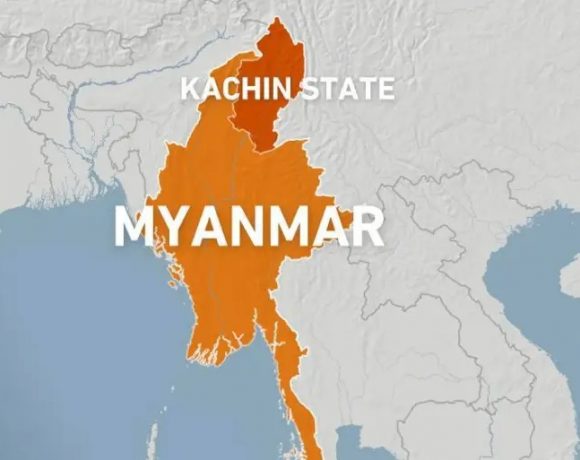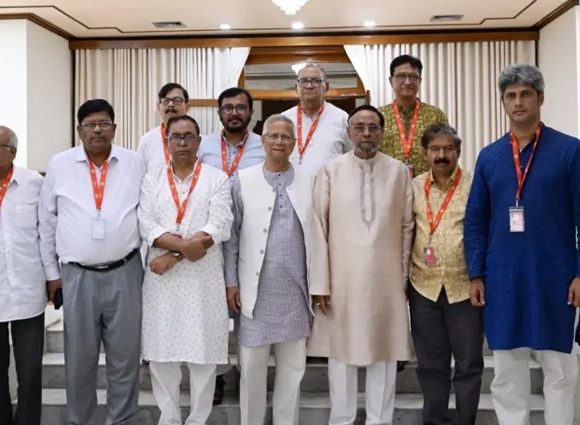A chain reaction of misery: How Myanmar’s instability will affect the Indo-Pacific and beyond

Major General Md Nayeem A Chowdhury
The security and stability of Myanmar is substantially affecting not only its neighbours but it is spreading all over the Indo-Pacific and beyond. Our neighbouring Rakhine State’s stability predominantly revolves around the Rohingya crisis. The primary issue of the Rohingya crisis is identity construction, politically used by the Myanmar authority for its internal and geostrategic reasons. This is one of the world’s longest-lasting and most horrifying instances of persecution of citizens by its own ruler. It has created an unprecedented human catastrophe which, for obvious reasons, could not remain confined within its own territory and has now spread beyond the region.
Bangladesh, being a neighbour, has been swallowing all of Myanmar’s disasters and challenges to the point where the ICJ has already taken the case into cognizance. UN, EU, ASEAN, OIC and other world organizations raised their concerns many times. The US, UK, Turkey, Zambia, Malaysia, and many other countries condemned the Myanmar government and asked for the honourable, voluntary, safe, sustainable repatriation of Rohingya to their motherland.
The Kofi Annan Commission gave specific recommendations for a sustainable peace in Rakhine. But, none of which were implemented. There were many bi and multilateral initiatives undertaken by Bangladesh and its friendly countries. But, till date, we can hardly see any significant stride towards its resolution. As predicted, the Rohingya issue has created a serious impact on Bangladesh in all conceivable sectors like security, economic, social, environmental etc of unbearable magnitudes and which is increasing in a geometric progression.
Ramifications of the Rohingya crisis are affecting not only Bangladesh but also have serious potential threats for Myanmar, the region, and the world even, especially on the security spectrum. The international community has a specific obligation to be involved in the Rohingya crisis which is threatening the security architecture of the region and beyond. Today we are standing at a crossroads of impunity by a state, maybe under the auspices of some vested quarters, and the requirement of establishing humanity across the world. The more we delay the further we support such inhumane acts and the establishment of another apartheid state.
Conflict genesis
The Rohingya have many centuries-old strings as dwellers in Rakhine even before Arakan; present-day Rakhine State was annexed by Burma on December 31, 1784 by the Burmese Konbaung Dynasty, if we leave a brief period of 24 years from 1406 to 1430. There were two Rohingya Members of Parliament (MA Gaffar and Sultan Ahmed) in the Constituent Assembly of Burma in 1947, six MPs were elected in 1951 including two women, and six MPs were elected in the 1956 general election.
Sultan Mahmud became Minister of Health in the cabinet of Prime Minister of Burma U Nu. Having all historical, political, anthropological, and cultural evidence of the Rohingya being inhabitants of Rakhine, denied all basic rights as normal human beings, let alone as citizens, especially after the independence of Burma — and more specifically after the military junta took over power in 1962. It’s not that they are going through these unbearable and inhumane atrocities under current or the immediate past military juntas. They underwent repression by the Portuguese or Magh pirates, Burmese king Budapawi or the Raja of Arakan after the annexation of Arakan, during wars between Arakan vs Burma, Bengal vs Arakan, and in three Anglo-Burmese wars.
The history of the Rohingya, since independence, has never seen any kind of liberty, protection, human rights, political rights, or basic freedoms. Rather, they experienced an increasing trend of persecution and abuse with renewed vigor over the period of time through various activities of the state agencies of Myanmar to ensure that the state of Rakhine is emptied of the Rohingya.
Some of the state-crafted measures undertaken by Myanmar are the amendment of the constitution in 1974, the brutal Army operation Nagamin against the Rohingya in 1978, the enactment of the Citizenship Act 1982, military operation against the Rohingya in 1991, the promulgation of the new constitution in 2008, the incitement of sectarian violence in 2012, the classification of citizens into permitted citizens, associate citizens, naturalized citizens etc between 2010 to 2015 which also denied political representation of Rohingyas.
Actions against the Rohingya, 2016 onward, have been a classic case of ethnic cleansing as described by United Nations officials. Today some 10% of the world’s stateless people live in Myanmar. Rohingya constitute the single largest stateless people in the world. The situation aggravated to its peak since the present military junta overturned the democratic/quasi-civil government on February 1, 2021. Millions of Myanmar citizens engaged in resisting the coup. The Security Council, ASEAN have condemned and denounced different activities of the military Junta. Today Myanmar is posing a threat to the whole Indo-Pacific region and beyond through three dimensions: The Rohingya crisis, the turn-down of democracy, and armed conflict with various groups within their own borders.
The Rohingya crisis has a significant impact on the regional security complex of East Asia and South Asia. This has changed the status of Myanmar in the security spectrum from a buffer state to an active actor of a sub-complex by forming a security sub-complex with Bangladesh. There are many other internal security issues which have significant ramification on many of its neighbouring countries and the Indo-Pacific region at large — countries like Thailand, India, Malaysia, Indonesia, Saudi Arabia, Japan, and more.
Recent security issues
Today, the security situation in Myanmar is unpredictable and more volatile than before. Myanmar is projecting a security threat for the world basically on three fronts: The Rohingya crisis which started since Burma became independent in 1948 and continues till date, the overthrow of the quasi-civil government in February 2021, and the declaration of emergency. We have observed an unprecedented upsurge from all strata of society throughout the whole country. Dolefully, the Myanmar military junta used almost all its military and law enforcement power to crush the popular demand. Then there is the fierce armed conflict between armed ethnic organization and the Tatmadaw in various states of Myanmar. This has resulted in subsequent population displacement within and across borders, including Thailand, India, and other nations.
Since February 2021, the Thai government has estimated that over 21,000 Myanmar refugees have sought temporary safety in Thailand. According to the UNHCR, an estimated 42,100 refugees have entered India (Mizoram and Manipur) from Myanmar since February 2021. As of 29 August 22, the total number of Internally Displaced People (IDP) in Myanmar since 1 February 2021 is 914,400 whereas prior to February 2, 2021 it was 330,400 and now total IDP estimated is 1,304,800.
As of the end of July 2022, there are some 184,980 (as per High Commissioner of Malaysia to Bangladesh it is more than 2,00,000) refugees and asylum-seekers registered with UNHCR in Malaysia. Refugees from Myanmar have even fled to Saudi Arabia, Indonesia, Canada, Japan also. This is not only a disaster for Myanmar but also an eminent threat for the whole Indo-Pacific region and beyond.
Recently, there were a number of security issues that took place along the Bangladesh-Myanmar border as well, like the air space violation, shelling across the border, etc which are in fact “irregularly regular” events by Myanmar.
These provocative activities are not only a violation of international norms and practices, but are always contrary to good neighborly relations. The Bangladesh government rightly raised the issue strongly every time through diplomatic channels. The promise of non-repetition is never adhered to.
The way forward
Myanmar is becoming a great concern for the whole world. To defuse the threat emanating from the nation, the most important stakeholder is the international community. The international community needs to undertake measures to ensure accountability of all human rights violations, reprisals, and atrocities by Myanmar through raising the issue in every possible international platform, strong economic and diplomatic measures, supporting and augmenting actions and activities of the ICJ, engagement with Myanmar’s present military junta, and also National Unity Government and other political parties.
The world powers must be united in the question of reprisal against humanity leaving aside their own national interest. The international community also needs to continue to support the stranded Rohingya along with the Bangladeshi government to ease the humanitarian sufferings. It is imperative that honourable, voluntary, safe, and sustainable repatriation of the Rohingya to their motherland be carried out for a peaceful and stable Indo-pacific region which is to be the ultimate objective of all efforts by the international community.
For Bangladesh, an all-out effort to resolve the Rohingya crisis is essential for her own security, stability, growth, and prosperity. Bangladesh should continue regular, structured, substantive, and persuasive diplomatic engagement by every possible means. Bangladesh needs to provide all kinds of support to ICJ, Zambia, OIC, human rights organizations, international organizations, friendly countries working on these issues, and provide all sorts of support to create a platform for the Rohingya leadership to voice their grievances and communicate their needs to the international forum.
Bangladesh should also not fall in the trap of Push (by Myanmar) and Pull (by ensuring a comfort zone for Rohingya in Bangladesh). The Rohingya residing in the no man’s land and near the Bangladesh-Myanmar border may be temporarily relocated with the help of public and people’s representatives to avoid any casualties. A kind of deterrence message should go to Myanmar about the consequences or retaliatory capabilities of the Bangladesh Armed forces and BGB through appropriate posture/activities.
Conclusions
Unless a concerted effort is undertaken by all the stakeholders, both within and outside Myanmar, with a wishful or compelled political will by the current military junta, the world — and more specifically the countries from the Indo-Pacific region — will have to suffer the chain reaction of consequences that Myanmar’s actions have already triggered. [Article Source: dhakatribune.com]
Major General Md Nayeem A Chowdhury, SBP, OSP, SUP, psc, PhD (Retired).



















